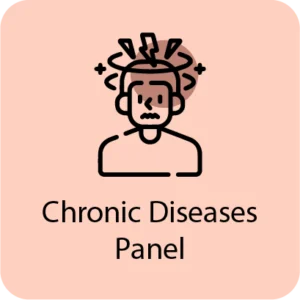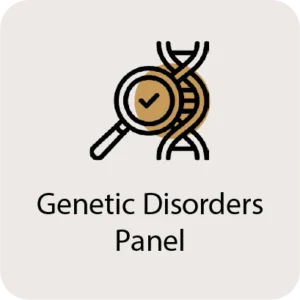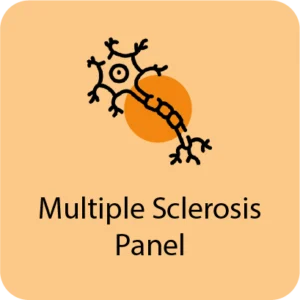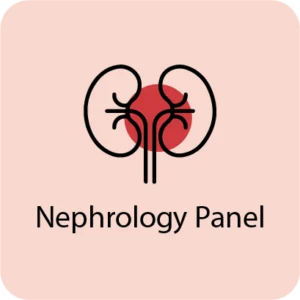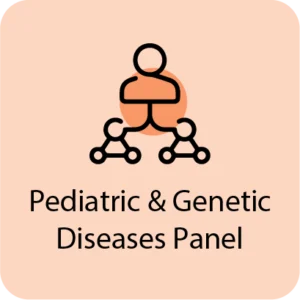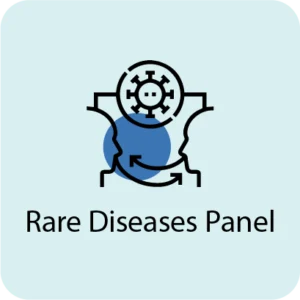Li-Fraumeni Syndrome Panel
LFS condition is a rare, inherited cancer predisposition syndrome characterized by an enhanced risk of developing various types of cancer at an early age. The mission is to empower individuals and families affected by LFS with knowledge, support, and personalized care. This goes well with navigating their health journey effectively.
What is Li-Fraumeni Syndrome (LFS)?
The condition of Li-Fraumeni Syndrome is a hereditary issue. This is caused due to mutations in the TP53 gene which goes well with the responsible for producing a tumor suppressor protein called p53. In individuals with LFS, mutations in the TP53 gene impair the body’s ability to regulate cell growth and repair damaged DNA. This shall enhance the risk of developing cancerous tumors throughout life.
Key Features of Li-Fraumeni Syndrome:
- Early-Onset Cancer: Individuals with LFS have a significantly higher risk of developing various types of cancer. This includes sarcomas (bone and soft tissue tumors), breast cancer, brain tumors, leukemia, adrenocortical carcinoma, and other malignancies. Some of the cancers usually occur at a younger age than in the general population.
- Family History: LFS is usually inherited in an autosomal dominant pattern. This also means that a mutation in one copy of the TP53 gene is sufficient to cause the condition. Individuals with such issue LFS usually have a family history of cancer, with multiple relatives affected by early-onset cancers across multiple generations.
- Multiple Primary Cancers: People with conditions like LFS are at increased risk of developing multiple primary cancers throughout their lifetime. It usually affects different organs or tissues. This predisposition to multiple cancers underscores the importance of vigilant screening and surveillance for early detection and treatment.
Importance of Genetic Testing:
- Identification of TP53 Mutations: Genetic testing plays a crucial role in diagnosing Li-Fraumeni Syndrome by identifying mutations in the TP53 gene. Testing can further be performed on individuals with a personal or family history suggestive of LFS to confirm the diagnosis and assess cancer risk.
- Risk Assessment and Management: Genetic testing shall provide valuable information about an individual’s cancer risk. This shall allow for personalized risk assessment and management strategies.
Lifecode offers genetic counseling and testing services to help individuals and families affected by LFS understand their genetic risk. It helps in making some well-informed decisions about cancer screening, surveillance, and risk-reducing interventions.
Management of Li-Fraumeni Syndrome by Lifecode:
- Personalized Care Plans: We believe in crafting personalized care plans tailored to your unique needs and genetic profile. Our healthcare professionals work closely with you to develop strategies for cancer prevention, surveillance, and management. It considers your family history, genetic predispositions, and lifestyle factors.
- Comprehensive Cancer Screening: Lifecode emphasizes some of the regular and comprehensive cancer screening for individuals with LFS. Through imaging studies, laboratory tests, and genetic markers. We further aim to detect cancer at its earliest stages, enabling timely intervention and improved treatment outcomes.
- Risk-Reducing Interventions: We further offer proactive interventions aimed at lowering the cancer risk and improving overall health outcomes. It also includes lifestyle modifications, like exercise routines, dietary changes, smoking cessation, and avoidance of environmental carcinogens.
Genetic Testing for Li-Fraumeni Syndrome by Lifecode:
- Identification of Genetic Mutations: The healthcare provides genetic testing services to identify mutations in the TP53 gene that is associated with Li-Fraumeni Syndrome. Early detection of such mutations shall help to follow proactive management and risk assessment. This shall empower you to make informed decisions about your health.
- Family Risk Assessment: Genetic testing not only benefits you but also helps assess the risk of LFS within your family. Identifying some of the individuals who carry the TP53 mutation enables targeted screening and surveillance, potentially reducing the burden of cancer within the family.
Why Act Now?
- Early Intervention Saves Lives: Prompt action is needed in managing Li-Fraumeni Syndrome effectively. Early detection of genetic mutations and implementation of proactive management strategies. This can significantly lower the risk of developing cancer and improve long-term health outcomes.
- Preventive Measures Matter: By further addressing some of the LFS early. You can also take proactive measures while minimizing your cancer risk and optimizing your overall health. This includes lifestyle modifications, regular screening, and adherence to recommended management protocols tailored to your genetic profile.
- Empowerment through Knowledge: Genetic testing and early intervention shall empower you with knowledge about your genetic predispositions and enable you to take control of your health journey. Armed with this information, you can make informed decisions about cancer prevention, screening, and treatment options.
Lifecode is your partner in managing Li-Fraumeni Syndrome effectively through personalized care, genetic testing, and proactive solutions. By further acting now, you can take proactive steps towards reducing your cancer risk. This shall also improve health outcomes, and living a fulfilling life. Contact Lifecode today to embark on your journey towards optimal health and well-being.
| Categories | Conditions Observed |
|---|---|
| Content Yet to Receive | Content Yet to Receive |
How do genetic tests help diagnose Li-Fraumeni Syndrome?
Genetic testing helps identify the gene mutations in the TP53 gene and is the primary method for diagnosing Li-Fraumeni Syndrome (LFS). These tests can identify pathogenic variants in TP53, confirming the diagnosis in individuals predisposed to the risk of developing LFS based on their personal or family history of cancer.
Who should get genetic testing for Li-Fraumeni Syndrome?
Genetic testing to confirm LFS is recommended for individuals who are genetically predisposed to it. Individuals with a personal or family history are prone to the syndrome, particularly if they or their family members have been diagnosed with multiple cancers, especially before age 45.
Can genetic testing anticipate the risk of cancer in individuals with Li-Fraumeni Syndrome?
Genetic testing helps identify LFS in suspected individuals who are predisposed to the risk of cancer. These tests may not predict the specific type or timing of cancer progression. Individuals with LFS will be recommended routine cancer screenings and surveillance to detect tumors at an early, to begin timely treatment.
How can genetic testing results for Li-Fraumeni Syndrome impact treatment decisions?
Genetic testing reports can influence treatment decisions by guiding personalized cancer screening and surveillance protocols. Individuals with LFS must undergo cancer screenings to detect tumors more frequently. Early detection will make the treatment easier.
Where can individuals get genetic tests for Li-Fraumeni Syndrome?
Individuals can undergo Genetic tests for LFS through specialized genetic testing laboratories or genetic counseling centers. Guidance and counseling will be provided by healthcare providers or oncologists to individuals and their families about to undergo genetic tests for LFS.
















